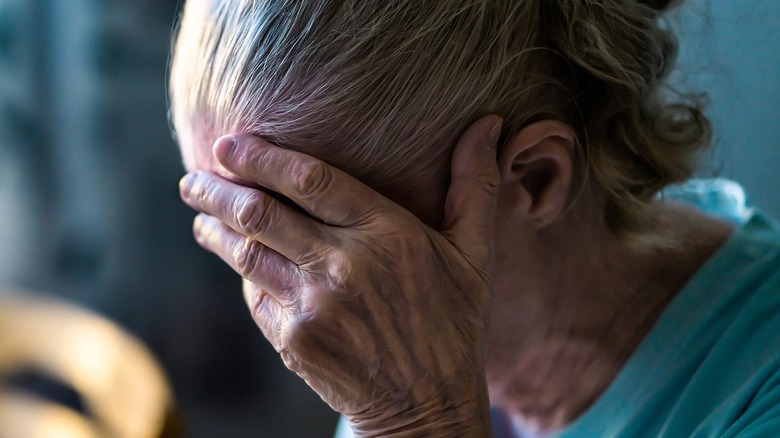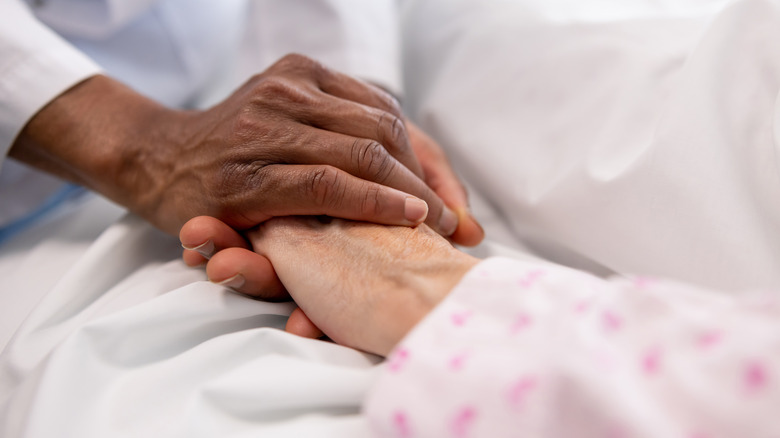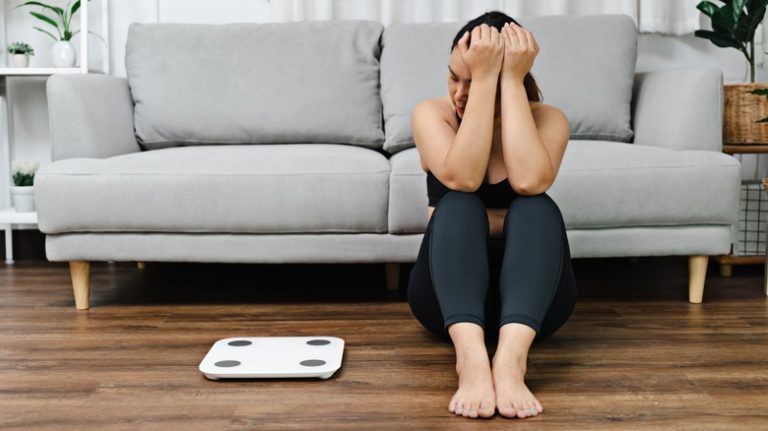In the conversation about what happens in the final moments before death, there is a lot of focus on the physical and even slightly unexplainable phenomena. While the physical elements entail loss of appetite, slowing down of internal organ function, and blotchy and cold skin, the otherworldly sensations may revolve around what people see and hear before they die.
But anxiety over death itself and other things can be a common sign that someone’s end of life is near. Your dying loved one could become anxious that they’re leaving this world — and you — and moving on to something unknown. Someone in palliative care might experience anxiety because of their terminal illness itself or how much pain it’s causing them. If their treatment is being scaled back or stopped, if they’re feeling isolated from friends and family (particularly, if they’ve not resolved hard feelings with someone), or if money-related matters are looming ahead, all of these can cause anxiety too.
Someone’s spiritual beliefs, or lack thereof, can also be a source of worry. The point when you’re close to death is when you start thinking about the finality of it all and if there is, in fact, something beyond this life. But the anxiety that comes with the end of one’s life brings other warning signs, too, like shortness of breath and sleep problems. Here’s a list of all of them.
Other signs of near-death anxiety

Apart from having trouble sleeping, those who are nearing death might feel an uncomfortable churning sensation in their stomach, restlessness, irritability, fatigue, a loss of focus and concentration, and muscle tension and pain, along with anxious emotions.
Sweating, agitation, heart palpitations, digestive issues like diarrhea, constipation, and nausea, withdrawing from loved ones, uncontrollable crying or yelling, and muscle twitching and trembling can also accompany anxiety as warning signs.
In fact, in hospice care circles, there’s another term that’s used to describe this kind of agitation that accompanies a person’s end of life: terminal restlessness. This more clinical definition of anxiety includes signs like the appearance of sudden behaviors that weren’t present before, agitated pulling of their own clothes, bedsheets, and even skin, discussing family members who’ve gone before them, and unfounded accusations of loved ones. Other symptoms of terminal restlessness include cognitive concerns like limited short-term memory, lack of awareness of their surroundings, disorientation, delusions, and slowed down or fast-paced bodily movements. For the loved ones who are caring for the person who’s dying, this can be a very challenging time. Not only are they dealing with the gradual loss of someone close to them, but they’re also witnessing their loved one in obvious mental distress.
How to handle the warning signs surrounding anxiety when someone is dying

A feeling of helplessness and not knowing what death holds can be at the root of why someone is feeling all of these emotions, so simply allowing them the chance to communicate can go a long way. Try to give your loved one the space to talk about what dying people want you to know and lend a non-judgmental and empathetic ear to them. Acknowledge their feelings and reassure them that their anxiety surrounding death is normal.
If you’re seeing some of the more physically distressing warning signs of anxiety, like chest pain, heart palpitations, and shortness of breath, make sure you alert their healthcare provider, who would be able to help alleviate some of these distressing symptoms with medications. Professional therapy tools like counseling, cognitive behavioral therapy, peer support groups, relaxation techniques, art or music therapy, mindfulness, and even spiritual conversations with a mentor of their choice can help as well.
Offering practical assistance to help your dying loved one reconnect with someone they want to make amends with or put their earthly possessions and finances in order before they depart might also help ease their worry. Along with the dying loved one, those surrounding them could also be wrestling with feelings of anxiety. By choosing to spend joyful moments together, reflecting on the good times, and speaking meaningfully about what’s to come, you can find a way to help the person at the end of their life — and yourself, too.



